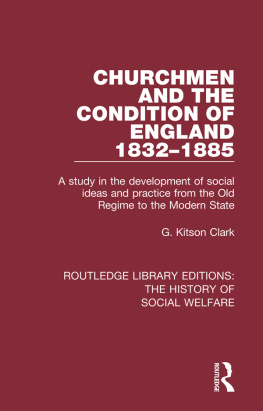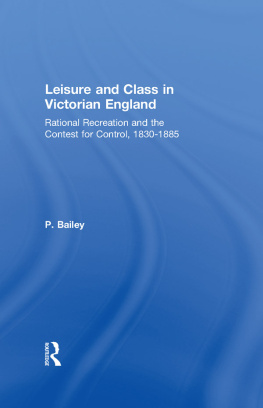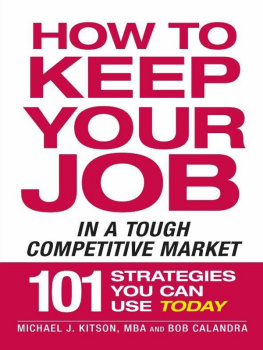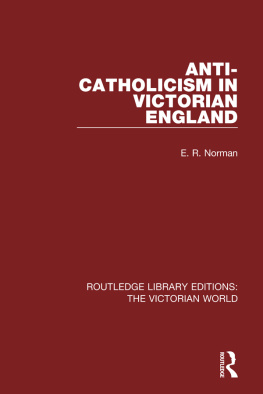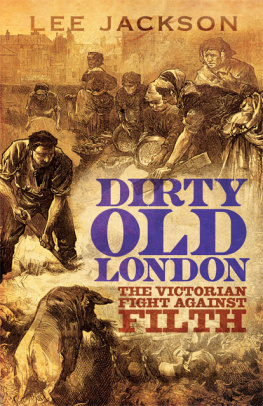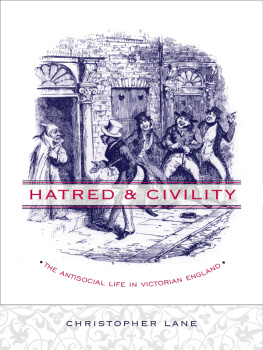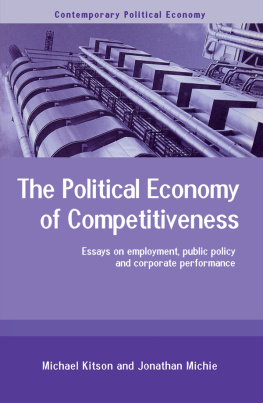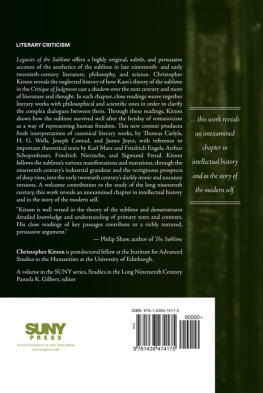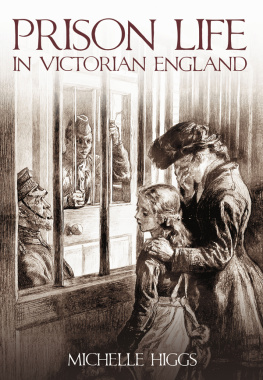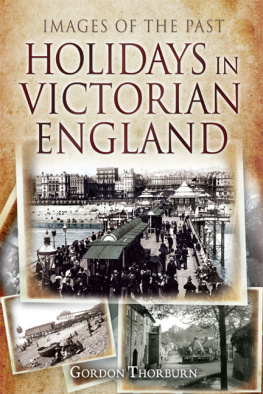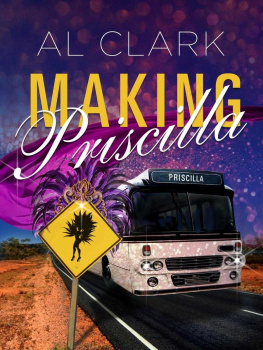First published 1962
by Routledge
Published 2013 by Routledge
2 Park Square, Milton Park, Abingdon, Oxon OX14 4RN
711 Third Avenue, New York, NY, 10017, USA
Routledge is an imprint of the Taylor & Francis Group, an informa business
British Library Cataloguing in Publication Data available
1962 G. Kitson Clark
All rights reserved. No part of this book may be reprinted or reproduced or utilized in any form or by any electronic, mechanical or other means, now known or hereafter invented, including photocopying and recording, or in any information storage or retrieval system, without permission in writing from the publishers.
ISBN 13: 978-0-415-06591-7 (pbk)
This book is founded on the Ford lectures which I delivered at Oxford in 1960 and I would like to begin by thanking those who gave me that opportunity. Professor Richard Pares, whose untimely illness and death was one of the most severe blows historical scholarship in Britain has received for a very long time, once wrote that the invitation to give the Ford lectures was the highest honour an English historian can receive, meaning it is to be presumed that can be received by an historian working in the field of English history, for it is to English history that the Ford lectures are confined. I feel no disposition to quarrel with this statement, though I find it alarming; that, however, does not diminish my gratitude.
The lectures were delivered from notes not a complete text, and it has therefore been necessary to write them out in full before publication. At certain points I have gone into greater detail than I could have done in the time at my disposal, at some points I have done additional research to confirm or check what I said at the time of delivery and on some points I have changed my mind, particularly towards the end of . For this reason I think it is better to call my divisions chapters and not lectures; but I do not think that I have at any point substantially altered the argument. What I give here is to all intents and purposes what I gave in the Ford lectures at Oxford.
I have more than the usual reasons for wishing to thank those who have helped me in preparing this book and also for exonerating them from all responsibility for what appears in it. As is the case with other historians nowadays, I have been anxious to write what might be called history in depth, that is history which gains a perspective from the use, in combination, of the various technical forms of history, each of which gives a special insight into a particular aspect of history. I feel quite sure that this is the right line of development for historiography at this moment, when so much specialized work has been done and it becomes increasingly important to see whether we can not use it to give a deeper reality to our general picture. But it is a line of development which has its own peculiar perils, for it renders necessary the use of professional techniques and specialized forms of knowledge by those who have never been trained to handle them. In preparing this volume I have been particularly uneasy about my use of economic history and demography. Though primarily a political historian, I have worked alongside economic historians all my life. Sir John Clapham was the first Cambridge historian I ever knew. I have for many years had the advantage of the friendship and advice of Professor Postan, and for the purposes of this book I have had the ready and constant help of Mr Charles Wilson and Mr David Joslin, to whom I am very grateful indeed. At the same time I know that it is one thing to receive expert advice and something quite different to use specialized material as an expert, and I want to emphasize the fact that any mistakes I have made in the handling of the material that comes within the category of economic history come from me not from them. I also wish to add that even if it turns out that in some of these matters I have got things egregiously wrong, I hope that other political historians will try to use economic history for their purposes for I am sure that very much can be done by combining such history with the detailed political research which is now in fashion.
I have another special obligation of a different sort to record. Since the last war a number of scholars have worked with me at Cambridge as research students. In the preparation of this book I have gained greatly from the ideas and help of those whose work was relevant to its subject. In some instances work by them has already been published or is going to be published very soon. This is, for instance, the case of Dr H. J. Hanham, whose work on Elections and Party Management in the time of Gladstone and Disraeli is already well known. Even so, the assistance I have received from Dr Hanham extends to matters which lie outside the compass of that book and goes back to the time when he was working with me as a research student. The same is true of Dr R. Robson, who only for a brief moment worked with me as a research student, but who has helped me continuously during the preparation of this book, and was also kind enough to read it in proof, and of Dr G. F. A. Best, whose most important work on the history of the Ecclesiastical Commissioners is indeed on the eve of publication. To all these I owe much, but I am also in the debt of several men none of whose work has reached the stage of publication. In particular there is Dr D. Cresap Moore, from whom I learnt a very great deal about the collapse of the old aristocratic control in the counties, Dr R. J. Lambert, from whom I gained much on Sir John Simon and the history of public health in the middle of the 19th century and Mr James Cornford, who has investigated the economic and social background to Conservative politics between 1870 and 1890. I have also to thank Mr F. B. Smith who has given me much help on the Act of 1867, and throughout. To these I would like to add another scholar, who never worked with me as a research student, but who taught in Cambridge for a time, the Rev. J. H. S. Kent. From him I learnt much about religious revivalism in the 19th century; he also helped me to find documents which illustrated the history of Nonconformity in the middle of the century.
I ought to say that, though in each case I was immensely helped by these men in the approach to their subjects, the views I put forward in this book are my own and have been arrived at after research which may have led me to make assertions for which they might not wish to be responsible. I hope therefore that nothing that I say will be taken as an anticipation of what they will in due course publish and I hope that each of them will soon have an opportunity of putting forward his own ideas for himself.
I wish also to express my great debt to Professor David Spring of Johns Hopkins University, Baltimore, who has done important work on the economy and management of the great landed estates in England in the 19th century. I ought to say that in the last two years my help from him has been necessarily by letter and that he has had no opportunity of checking the statements which I refer to his authority. I also wish to thank Professor W. O. Aydelotte of the State University of Iowa State, U.S.A., for his help. I refer to his work in the course of my first lecture and in reply to a question which I referred to him he sent to me a paper which seemed to me of such value and so relevant to part of my argument that with his leave I print it as an appendix at the end of the volume. Dr J. P. C. Roach gave me help with regard to 19th century Universities, Mr Frank Beckwith of the Leeds Library, Commercial Street, Leeds, gave me repeated assistance from his unrivalled knowledge of Yorkshire in the 19th century, Dr A. J. Rook gave me help on medical matters, Professor H. W. R. Wade upon law, the Rt Rev. Mgr A. N. Gilbey on Roman Catholic history in the 19th century and Mr G. O. Pierce help towards the study of a point in Welsh history. Professors Asa Briggs, W. L. Burn, Sydney Checkland, W. O. Chadwick, and Arnold Lloyd and Drs F. C. Mather, W. H. Chaloner and O. MacDonagh have all been very kind in answering questions and suggesting lines of thought and I have been helped by others too numerous to mention individually and who will, I hope, forgive me for not naming them.




